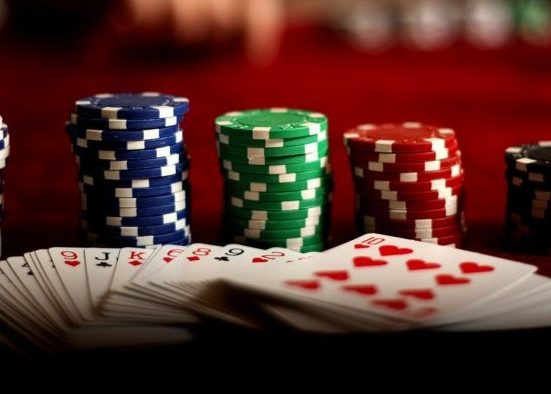You can learn how to read poker tells and not only see the habits and tics of your opponents but you can also observe your own behavior to ensure your body language doesn’t reveal all your secrets.
A poker “tell” refers to a way of playing poker that is physical or verbal. It can be verbal or nonverbal, and can either be intentional or unintentional. This type of behavior or habit can give (or tell) you information about other players’ hands.
Poker players often pay little to no attention at all to the actions of their opponents at the table. This is not the best way to win poker. Mike Caro, a respected authority in poker, states that you can make more money by learning from your opponent’s mistakes, than from your fancy play. You must learn and assess your opponents to be successful at poker. If you don’t know who is making the mistakes, you can’t capitalize.
These are some guidelines to help you read poker tells.
Pretending to have a weak or strong hand –In general, a player who acts strong is likely weak. A player who acts weaker is probably a strong player. Pay attention to players who act out during the betting process.
Indications Heart rate and adrenalin are voluntary reactions. You can tell if a player is excited by a large hand by their hands shaking or rapid heartbeat.
Modifications in Mannerism – A player who is more upright, takes off their glasses and quickly finishes their drink or ends a conversation abruptly, probably has a strong hand.
Intimidates Their Opponent A poker player who throws his chips at a player to challenge him is usually weak and trying to intimidate the player into folding the hand with the better hand.
The Impatient Player – Sometimes impatience can be a sign that you have a decent hand. They wouldn’t mind if the action took longer if they were going to fold.
Grabbing for Their Chips There are two ways you can interpret this action. You must pay attention. You can tell if the player is attempting to grab his chips with an aggressive (whatever bet you place, you will be called!) manner before you have even done anything. This is usually a sign that he is faking strength. If a player is setting up his chips in a thoughtful (how to bet, raise) passive manner before the action starts, it could be thinking about how much he can make from his winning hand. Your ability to read poker is tested here.
Signs of Indifference: When a player says “Oh, I guess, I’ll call”, they are often trying to conceal a large hand.
Flashing or exposing One of Their Hole Cards A player who exposes one of his hole cards to a neighbor or to an opponent is trying to convince that they have a good hand. If his hand was really that good, he would be careful to hide and protect it.
Stop Doing the Things They Used to Do – Pay close attention to food eaters, candy suckers, gum chewers, and book readers. You can bet they will find a favorable poker hand when they stop engaging in these activities.
Body Language and Tics Some poker players will cover their mouths, fold their hands or scratch their faces to give you clues about their hand strength or weakness.
Even though it isn’t always reliable, reading poker tells can be quite interesting. Take a look at what poker tells other players can give you next time you’re at the table. Remember that there are always others doing the same thing as you .
Poker Knowledge = Poker Skills = Poker Wins.
You can read more of my poker articles at [http://www.pokerplayershouldknow.com/]. This site contains poker tips, strategies, and advice that every poker player needs to know in order to win, improve, and play poker well.
I write articles to educate average poker players. The majority of other online poker sites look the same and contain the same information. My goal is to create an informative blog that allows poker players to learn about all aspects of poker, not just the best. I hope you find it entertaining and useful. We look forward to seeing you at the tables.
Poker was not a popular game when I began playing poker. Poker was a natural part of my family’s tradition of playing card games. I’m not a professional by any means. I’m just an average person who enjoys playing all kinds of poker, although Texas Hold’em has always been my favorite. My only claim to fame is that I have played in many different venues over the years. My philosophy is Poker Knowledge = Poker Skills = Poker Wins. Let me leave you with the thought that “There is no perfect poker player; only humble souls who work hard to become them”.








